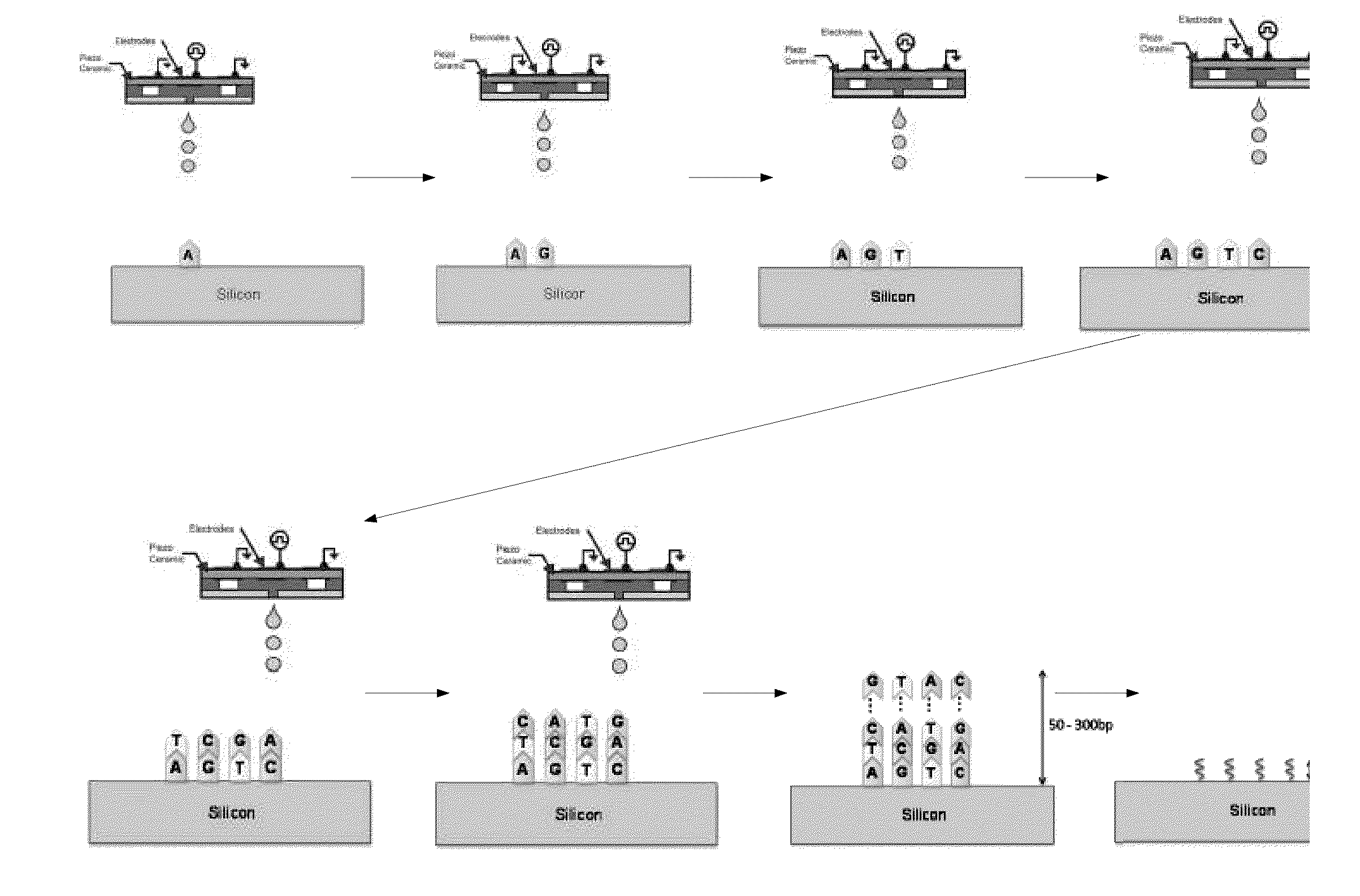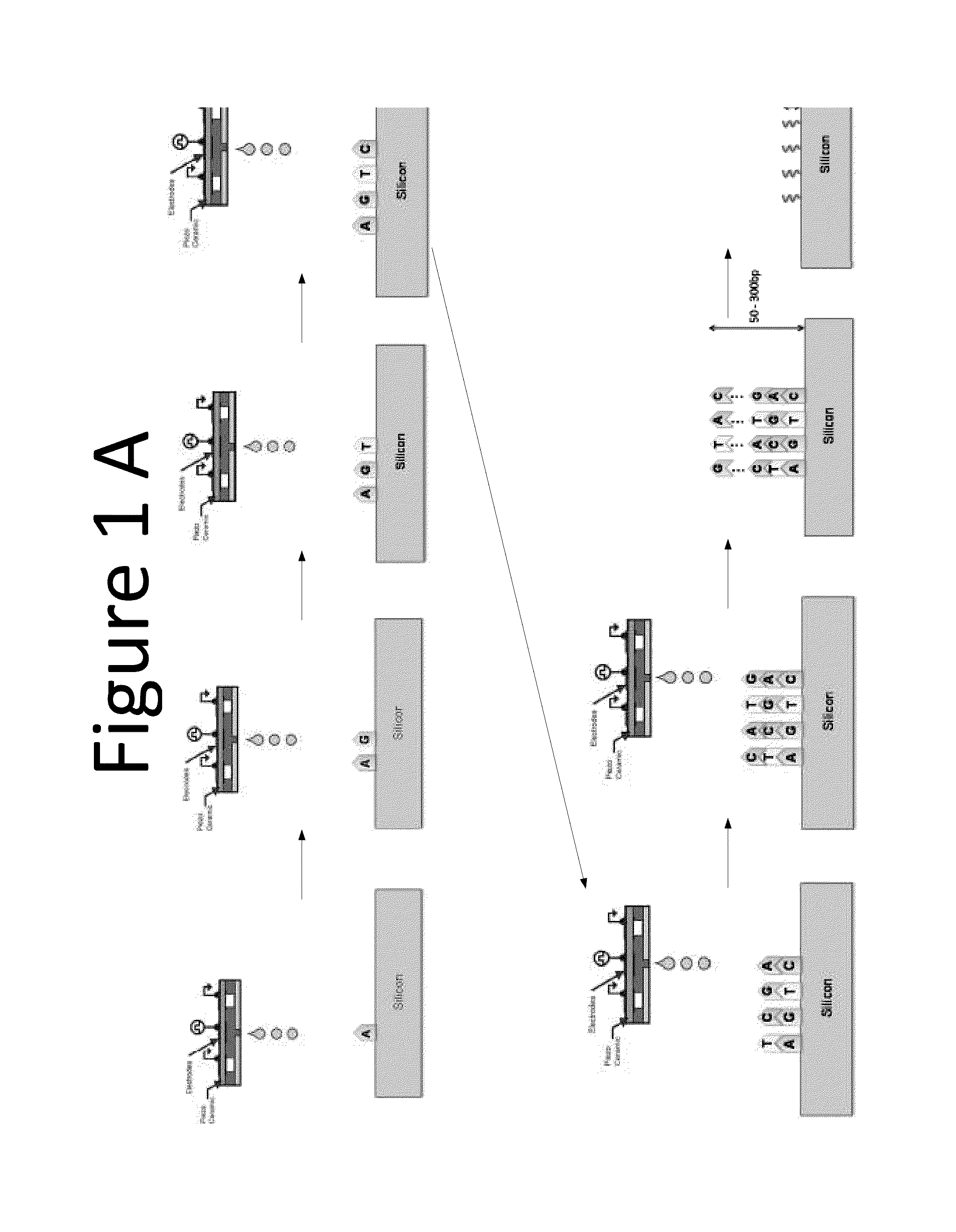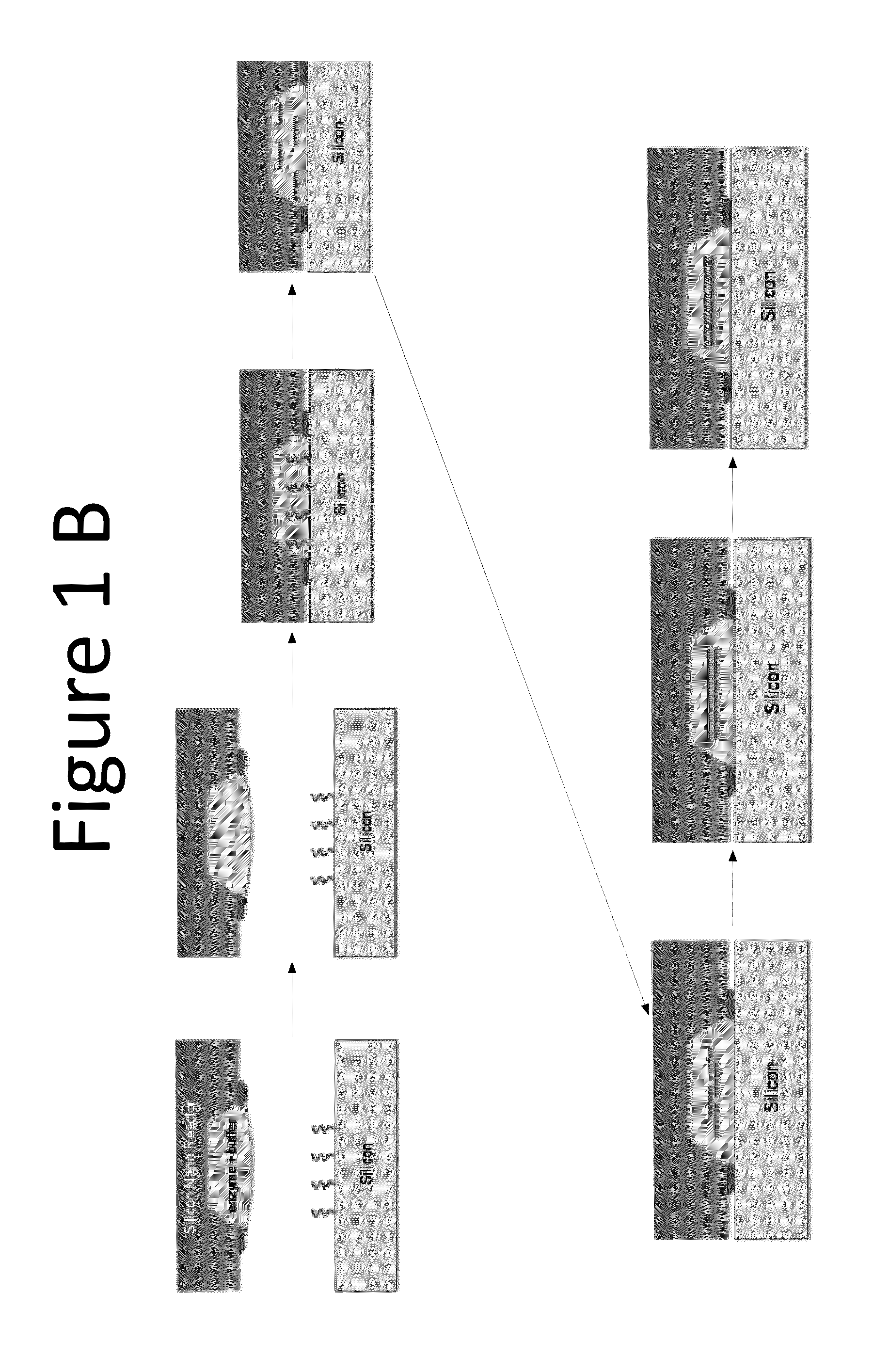De novo synthesized gene libraries
- Summary
- Abstract
- Description
- Claims
- Application Information
AI Technical Summary
Benefits of technology
Problems solved by technology
Method used
Image
Examples
example 1
Front-End Processing of a Silicon Wafer to Create a Microwell
[0605]Silicon wafers are etched to create an exemplary substrate comprising a plurality of microwells using a front-end processing method as illustrated in FIG. 23. Starting with a SOI substrate with a layer of oxide on both surfaces of the substrate, a layer of photo-resist is coated using photolithography method on the handle-side of the substrate at preferred locations. Following the coating of the photo-resist, DRIE is performed on the handle side until reaching to the layer of oxide in the middle of the wafer. Then, the coating of the photo-resist is stripped away exposing the layer of oxide underneath. Similarly, a second layer of photo-resist is coated using photolithography method on the device-side of the substrate at preferred locations, with suitable diameters. Following the coating of the second layer of photo-resist, DRIE is performed again on the device-side of the silicon wafer until reaching the layer of ox...
example 2
Back-End Processing of a Silicon Wafer to Functionalize Selected Surface of the Microwell
[0606]The silicon wafer with etched microwells is further processed to functionalize selected portions of the microwells using a back-end processing method as illustrated in FIG. 24. To coat only the surface of a smaller microwell within a microwell with an active functionalization agent that increases surface energy, the product from Example 1 is used as the starting material. A droplet of photo-resist is deposited into the microchannel using an inkjet printer as described herein. The droplet of photo-resist is spread into the microchannel in fluidic connection to the microwell. Following the photoresist deposition, oxygen plasma etch is performed to etch back excess photoresist, leaving a smoother surface of photo-resist as illustrated in FIG. 24. A layer of a chemically inert moiety is coated onto all exposed surfaces of the silicon wafer to create a passive functionalization layer with low s...
example 3
Microfluidic Device
[0607]A microfluidic device comprising a substantially planar substrate portion was manufactured according to the methods and compositions of the invention as shown in FIG. 25D. A cross-section of the substrate is shown in FIG. 25E. The substrate comprises 108 clusters, wherein each cluster comprises 109 groupings of fluidic connections. Each grouping comprises 5 second channels extending from a first channel. FIG. 25A is a device view of each cluster comprising the 109 groupings. FIG. 25C is a handle view of the cluster of FIG. 25A. FIG. 25B is a section view of FIG. 25A showing a row of 11 groupings. FIG. 25F is another view of the substrate shown in FIG. 25D, wherein the position of a label is visualized. FIG. 25G is an expanded view of FIG. 25A, indicating the 109 groupings of the cluster.
[0608]As shown in FIGS. 25A and 25C, the 109 groupings are arranged in offset rows to form a cluster in a circle-like pattern, where the individual regions are non-overlappin...
PUM
| Property | Measurement | Unit |
|---|---|---|
| Fraction | aaaaa | aaaaa |
| Volume | aaaaa | aaaaa |
| Digital information | aaaaa | aaaaa |
Abstract
Description
Claims
Application Information
 Login to View More
Login to View More - R&D
- Intellectual Property
- Life Sciences
- Materials
- Tech Scout
- Unparalleled Data Quality
- Higher Quality Content
- 60% Fewer Hallucinations
Browse by: Latest US Patents, China's latest patents, Technical Efficacy Thesaurus, Application Domain, Technology Topic, Popular Technical Reports.
© 2025 PatSnap. All rights reserved.Legal|Privacy policy|Modern Slavery Act Transparency Statement|Sitemap|About US| Contact US: help@patsnap.com



